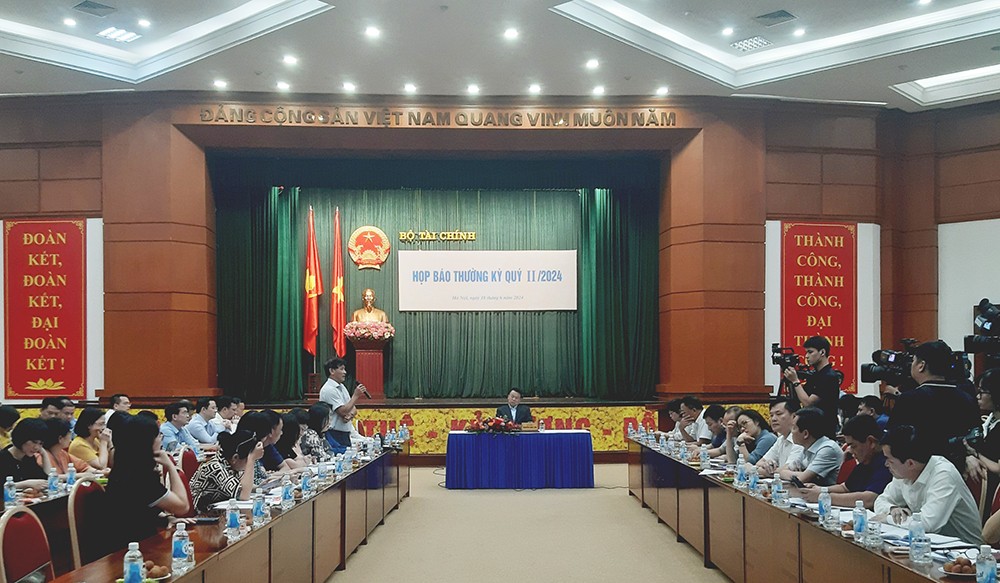
On June 18, the Ministry of Finance conducted its regular press conference for the second quarter of 2024. During the event, representatives from the General Department of Taxation addressed inquiries concerning tax management for gold trading activities.
Mr. Dang Ngoc Minh, Deputy Director-General of the General Department of Taxation, highlighted that similar to other sectors, gold trading is subject to State regulation, including tax oversight. The tax authorities have recently strengthened their supervision in this area.
In response to government directives regarding invoice control in gold transactions, the tax sector has implemented several measures, including the use of electronic invoices through cash registers to monitor these transactions effectively.
Recently, the tax authority and the Ministry of Finance have proposed shifting gold trading transactions to non-cash payments, requiring all transactions to be settled through bank accounts.
Regarding the proposal to tax gold transactions aimed at curbing demand from certain investor segments and addressing market speculation and price manipulation, Deputy Minister of Finance Nguyen Duc Chi stated that the ministry would carefully receive, research, and evaluate the impact of this proposal.
According to Mr. Nguyen Duc Chi, taxing gold transactions not only affects traders directly but also has broader implications. Therefore, the Ministry of Finance will conduct a thorough assessment and submit a report to relevant authorities.
In response to recent fluctuations in the domestic gold market, the State Bank of Vietnam (SBV) has implemented various measures to stabilize it. Initially, the SBV conducted auctions to increase the supply of SJC gold bars but later halted this approach due to its ineffectiveness.
Since June 3, the SBV has been selling SJC gold bars through four state-owned commercial banks, namely Agribank, BIDV, Vietcombank, and Vietinbank, to stabilize prices.
























